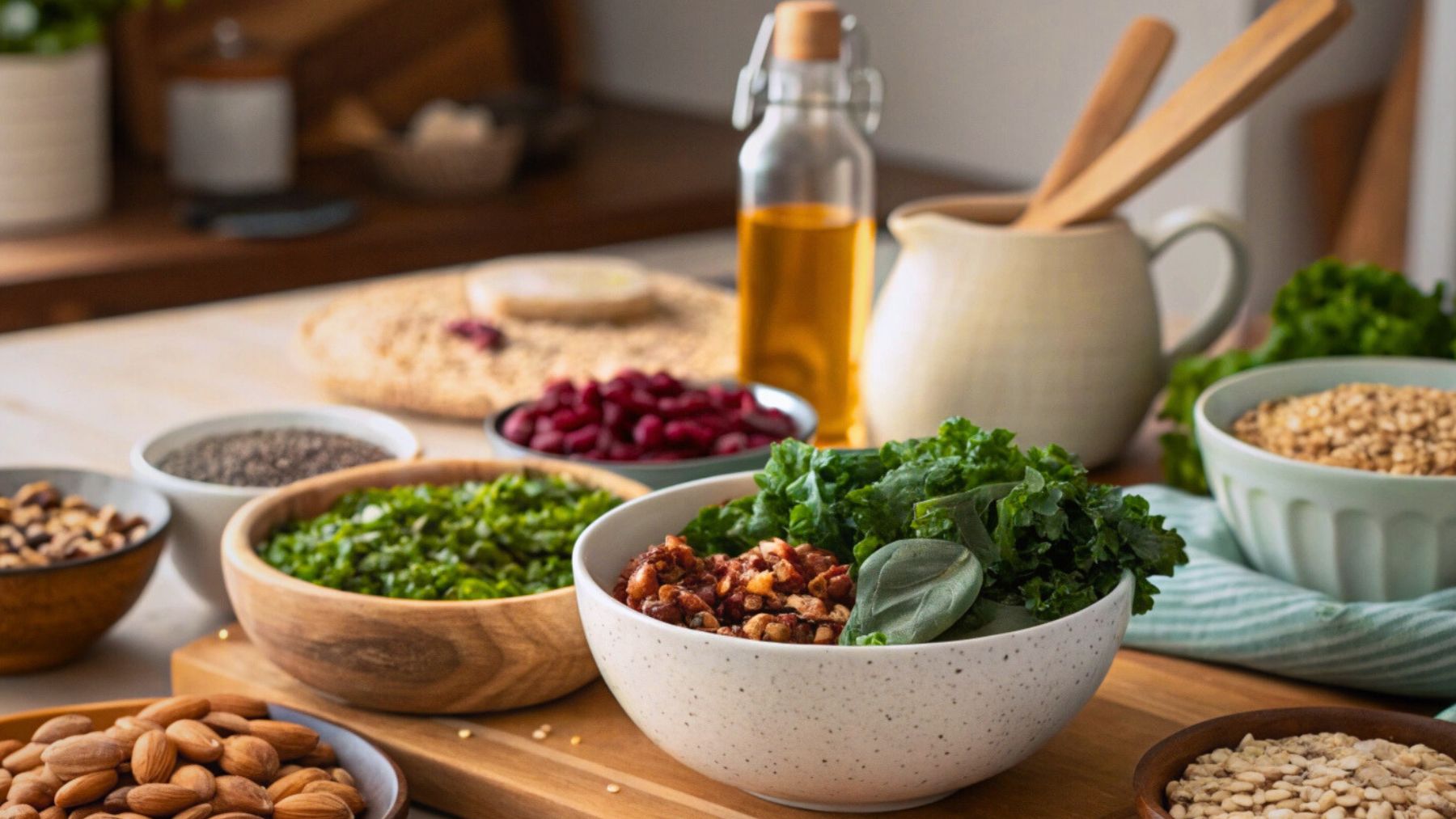Haley Bishoff, a registered dietitian, went vegan more than a decade ago. Her journey into a plant-based diet sparked a passion for nutrition, eventually leading her to a career helping others. Over the years, Haley has learned what it takes to succeed with a plant-based lifestyle and now shares her best tips to make the transition easier and more enjoyable.
Switching to a plant-based diet doesn’t have to feel restrictive or overwhelming. It’s all about approaching the change with the right mindset, pacing yourself, and having the right resources. Here are four essential strategies from Haley to set you up for success.
1. Embrace an abundance mindset
Many people worry that going plant-based means giving up favorite foods and feeling restricted. However, Haley emphasizes the importance of reframing this perspective. “Going plant-based opens you up to so many new dishes, foods, ingredients, and ideas you never may have had before”, she explains. Instead of focusing on what you’re removing, think about what you’re adding.
Swap plain lettuce for dark leafy greens like spinach or kale, and experiment with whole grains like quinoa or farro. Top it off with protein-rich nuts, seeds, or legumes. Plant-based eating invites creativity and a chance to discover foods you might have otherwise missed.
2. Take it slow and steady
Transitioning to a plant-based diet looks different for everyone. While some people thrive by making an overnight switch, most benefit from a gradual approach. “Going too gung-ho at the beginning when motivation is high can lead to burnout and unsustainable change”, Haley warns.
Start small, incorporating one plant-based meal a week, then gradually increase to two or three. You might aim to make all your lunches plant-based before transitioning your dinners. This slow and steady approach feels more manageable and helps your body adjust to changes.
3. Invest in resources and experiment
According to Haley, having the right resources can make all the difference. “Every dairy or meat-based dish you enjoy has a similar vegan version out there”, she shares. A good plant-based cookbook or food blog can be a goldmine of inspiration.
Start by trying one or two new recipes a week. Whether you’re recreating your favorite comfort foods or exploring global cuisines, there’s a world of plant-based options waiting to be discovered. Plus, the availability of plant-based products has exploded in recent years, making it easier than ever to find delicious and convenient alternatives.
4. Seek professional guidance
Haley’s final tip is perhaps the most important: work with a registered dietitian who specializes in plant-based nutrition. “Without proper education, it’s difficult to know which food sources offer the nutrients you require”, she says.
A dietitian can help you understand how to get enough protein, iron, and other essential nutrients from plant-based sources. They’ll create a personalized plan to ensure you’re meeting your macro and micronutrient needs while maintaining balance and variety.
Transitioning to a plant-based diet doesn’t have to be daunting. By adopting an abundance mindset, pacing yourself, exploring new foods, and seeking expert support, you can make the change smoothly and sustainably. Haley’s journey proves that plant-based living can be both delicious and rewarding, and you also can take the first steps toward a healthier lifestyle.
